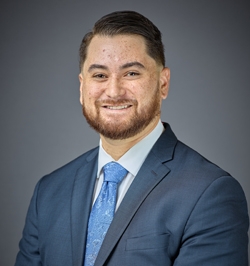EEOC Provides Updated Guidance on the ADA, the Rehabilitation Act and COVID-19
Contact Clara (C.B.) Burns, Charles C. High, Jr., Michael D. McQueen and Gilbert L. Sanchez -
April 24, 2020
Yesterday, the Equal Employment Opportunity Commission (“EEOC”) issued updated guidance about COVID-19, the Americans with Disabilities Act (“ADA”), and the Rehabilitation Act. The EEOC reiterated that the ADA and Rehabilitation Act continue to apply throughout the COVID-19 pandemic, but the laws do not interfere with employers complying with guidelines and suggestions made by the CDC or state and local public health authorities in response to the pandemic. Here are the highlights:
1. As government stay-at-home orders are modified or lifted, employers may take steps to determine if employees entering the workplace have COVID-19, including administering COVID-19 testing to employees before they enter the workplace to determine if they have the virus. Employers must ensure the tests are accurate and reliable;
2. Employers that have daily temperature checks before entering the workplace may maintain a log of the results, but employers need to maintain the confidentiality of this information;
3. During the pandemic, employers should still engage in the interactive process and request information from an employee as to why a requested accommodation is necessary. If it is not obvious or already known, an employer may ask questions or request medical documentation to determine whether the employee’s disability necessitates an accommodation. Possible questions for the employee include how the disability creates a limitation, how the requested accommodation will address the limitation, whether another form of accommodation may address the limitation, and how a proposed accommodation will enable the employee to continue performing the essential functions of the employee’s position;
4. Employers may provide temporary accommodations in light of pandemic. Employers may wish to adapt the interactive process – and devise end dates for an accommodation – to suit changing circumstances based on public health directives. Employers may also provide a requested accommodation on an interim or trial basis, with an end date, while awaiting receipt of medical documentation;
5. An employer does not have to provide a particular reasonable accommodation if it poses an undue hardship which means “significant difficulty or expense.” In some circumstances, an accommodation that would not have posed an undue hardship prior to the pandemic may pose one now.
6. The ADA and Rehabilitation Act apply to applicants or employees that are classified as critical infrastructure workers or essential critical workers by the CDC;
7. Employers may require employees to wear protective gear such as masks and gloves in the workplace. However, where an employee with a disability needs a reasonable accommodation or where a religious accommodation is needed, the employer should discuss the request and provide modifications if the modifications are feasible and do not impose an undue burden; and
8. Employers may require employees to observe infection control practices such as regular handwashing and social distancing protocols.
Employers should continue to monitor CDC and state and local public health directives regarding the pandemic as stay-at-home orders are modified or lifted. The CDC recently posted information on how to implement safety practices for certain types of critical workers to return to work: https://www.cdc.gov/coronavirus/2019-ncov/community/critical-workers/implementing-safety-practices.html. These protocols include pre-screening employees, regular monitoring of employees with no COVID-19 symptoms, wearing protective gear, social distancing, and disinfecting workspaces regularly.
If you have any questions about the EEOC’s updated guidance or what steps to take to ensure safety practices are implemented in the workplace as stay-at-home orders are modified or lifted, please feel free to contact Kemp Smith’s Labor and Employment Department at 915-533-4424.
1. As government stay-at-home orders are modified or lifted, employers may take steps to determine if employees entering the workplace have COVID-19, including administering COVID-19 testing to employees before they enter the workplace to determine if they have the virus. Employers must ensure the tests are accurate and reliable;
2. Employers that have daily temperature checks before entering the workplace may maintain a log of the results, but employers need to maintain the confidentiality of this information;
3. During the pandemic, employers should still engage in the interactive process and request information from an employee as to why a requested accommodation is necessary. If it is not obvious or already known, an employer may ask questions or request medical documentation to determine whether the employee’s disability necessitates an accommodation. Possible questions for the employee include how the disability creates a limitation, how the requested accommodation will address the limitation, whether another form of accommodation may address the limitation, and how a proposed accommodation will enable the employee to continue performing the essential functions of the employee’s position;
4. Employers may provide temporary accommodations in light of pandemic. Employers may wish to adapt the interactive process – and devise end dates for an accommodation – to suit changing circumstances based on public health directives. Employers may also provide a requested accommodation on an interim or trial basis, with an end date, while awaiting receipt of medical documentation;
5. An employer does not have to provide a particular reasonable accommodation if it poses an undue hardship which means “significant difficulty or expense.” In some circumstances, an accommodation that would not have posed an undue hardship prior to the pandemic may pose one now.
6. The ADA and Rehabilitation Act apply to applicants or employees that are classified as critical infrastructure workers or essential critical workers by the CDC;
7. Employers may require employees to wear protective gear such as masks and gloves in the workplace. However, where an employee with a disability needs a reasonable accommodation or where a religious accommodation is needed, the employer should discuss the request and provide modifications if the modifications are feasible and do not impose an undue burden; and
8. Employers may require employees to observe infection control practices such as regular handwashing and social distancing protocols.
Employers should continue to monitor CDC and state and local public health directives regarding the pandemic as stay-at-home orders are modified or lifted. The CDC recently posted information on how to implement safety practices for certain types of critical workers to return to work: https://www.cdc.gov/coronavirus/2019-ncov/community/critical-workers/implementing-safety-practices.html. These protocols include pre-screening employees, regular monitoring of employees with no COVID-19 symptoms, wearing protective gear, social distancing, and disinfecting workspaces regularly.
If you have any questions about the EEOC’s updated guidance or what steps to take to ensure safety practices are implemented in the workplace as stay-at-home orders are modified or lifted, please feel free to contact Kemp Smith’s Labor and Employment Department at 915-533-4424.



















































